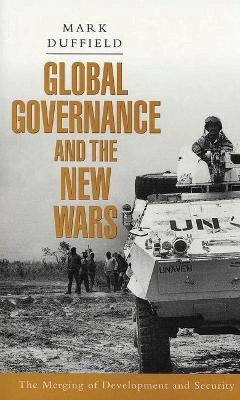

Global governance and the new wars : the merging of development and securityUpplaga 1
- Upplaga: 1a upplagan
- Utgiven: 2001
- ISBN: 9781856497497
- Sidor: 304 st
- Förlag: Zed
- Format: Häftad
- Språk: Engelska
Om boken
Åtkomstkoder och digitalt tilläggsmaterial garanteras inte med begagnade böcker
Mer om Global governance and the new wars : the merging of development and security (2001)
2001 släpptes boken Global governance and the new wars : the merging of development and security skriven av Mark Duffield. Det är den 1a upplagan av kursboken. Den är skriven på engelska och består av 304 sidor. Förlaget bakom boken är Zed.
Köp boken Global governance and the new wars : the merging of development and security på Studentapan och spara pengar.
Referera till Global governance and the new wars : the merging of development and security (Upplaga 1)
Harvard
Oxford
APA
Vancouver



















